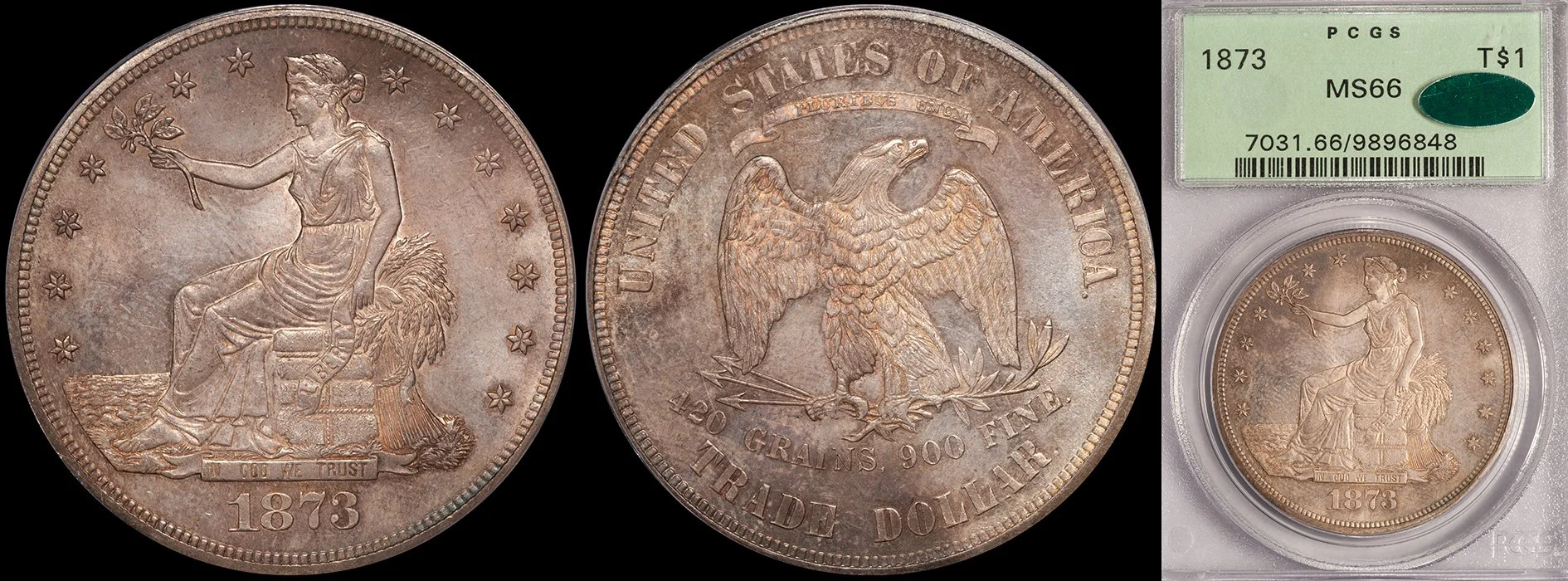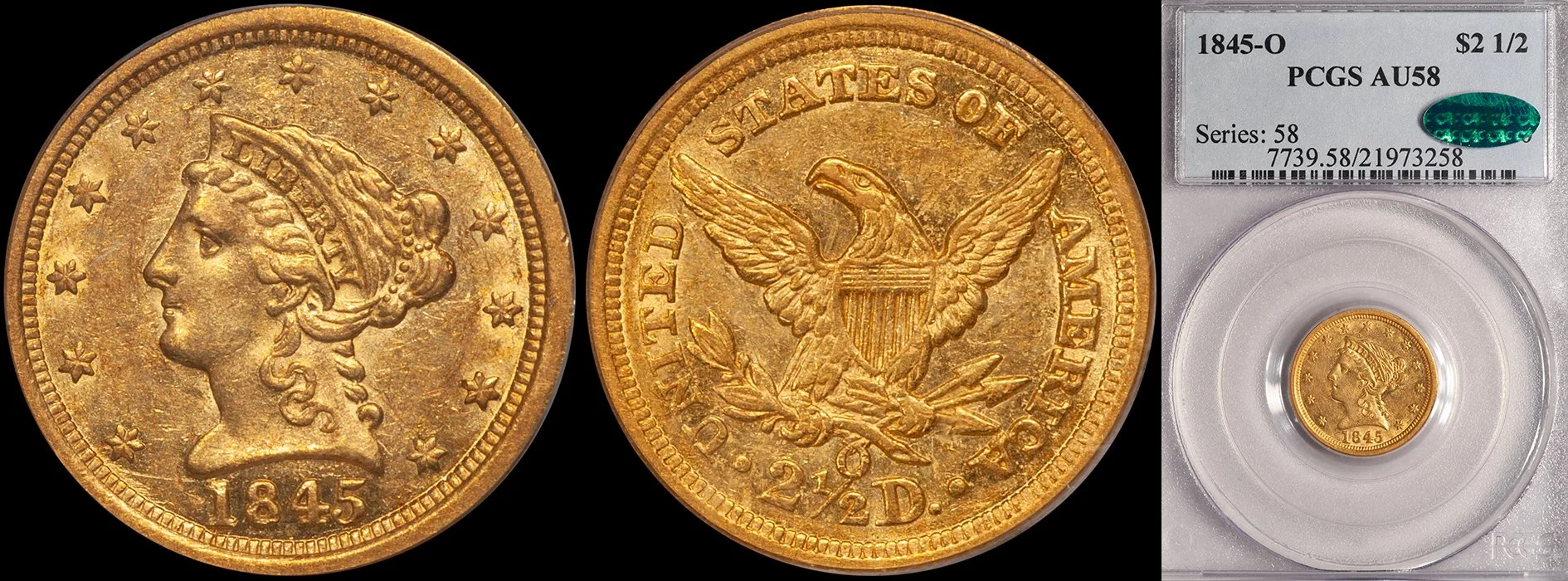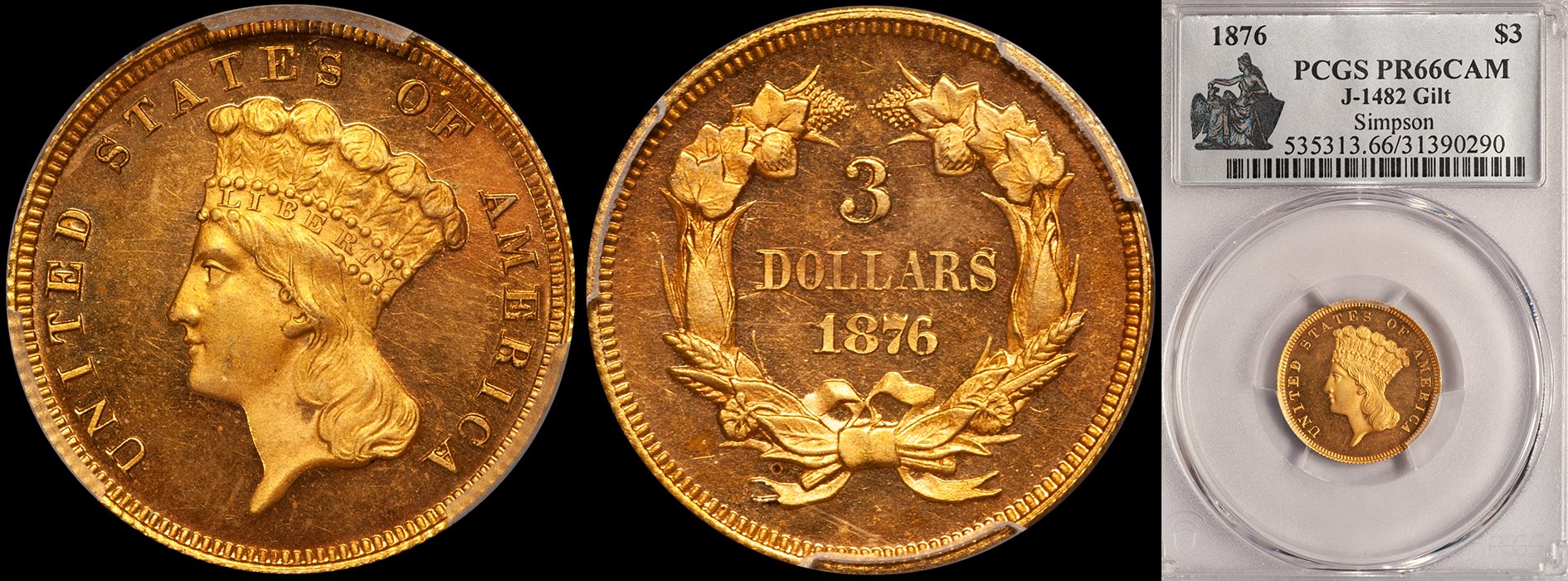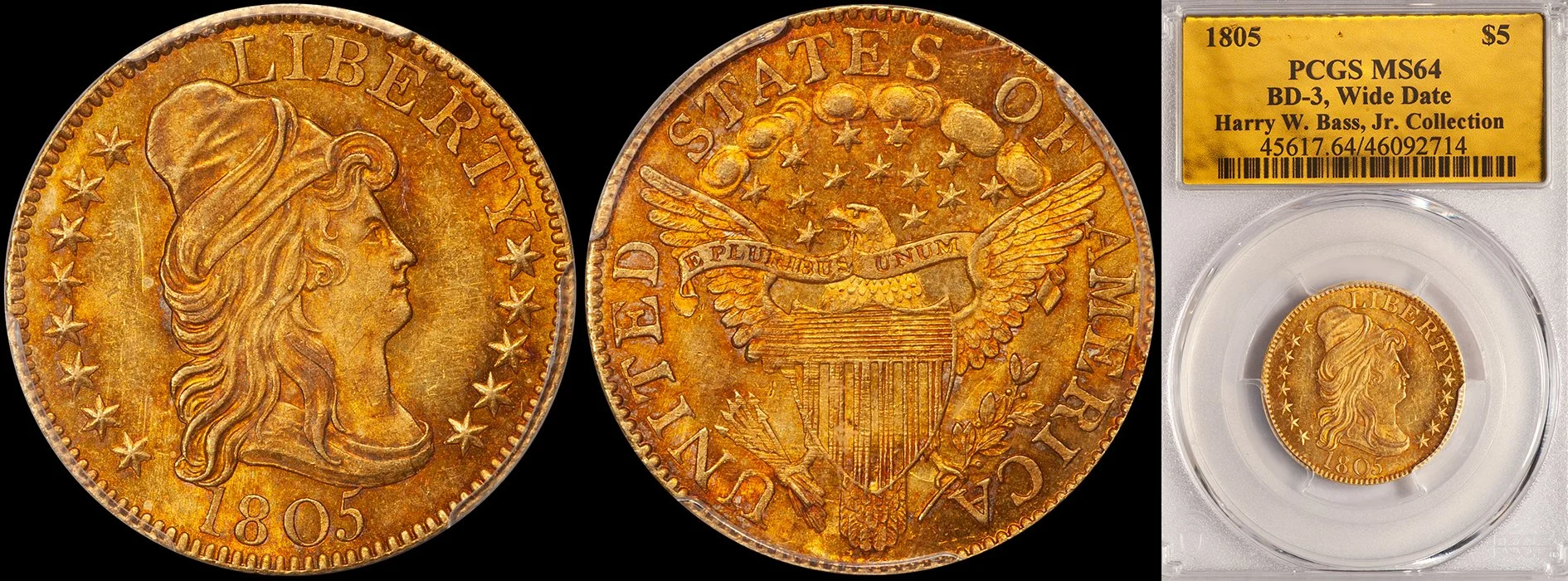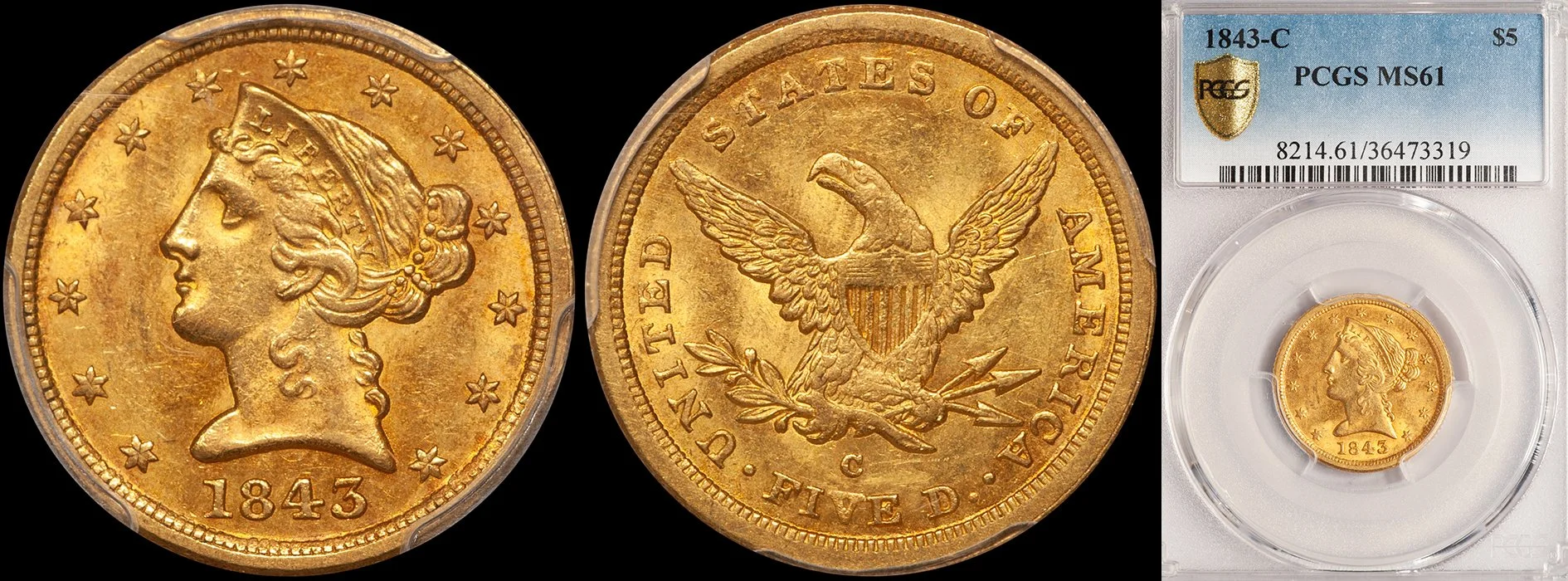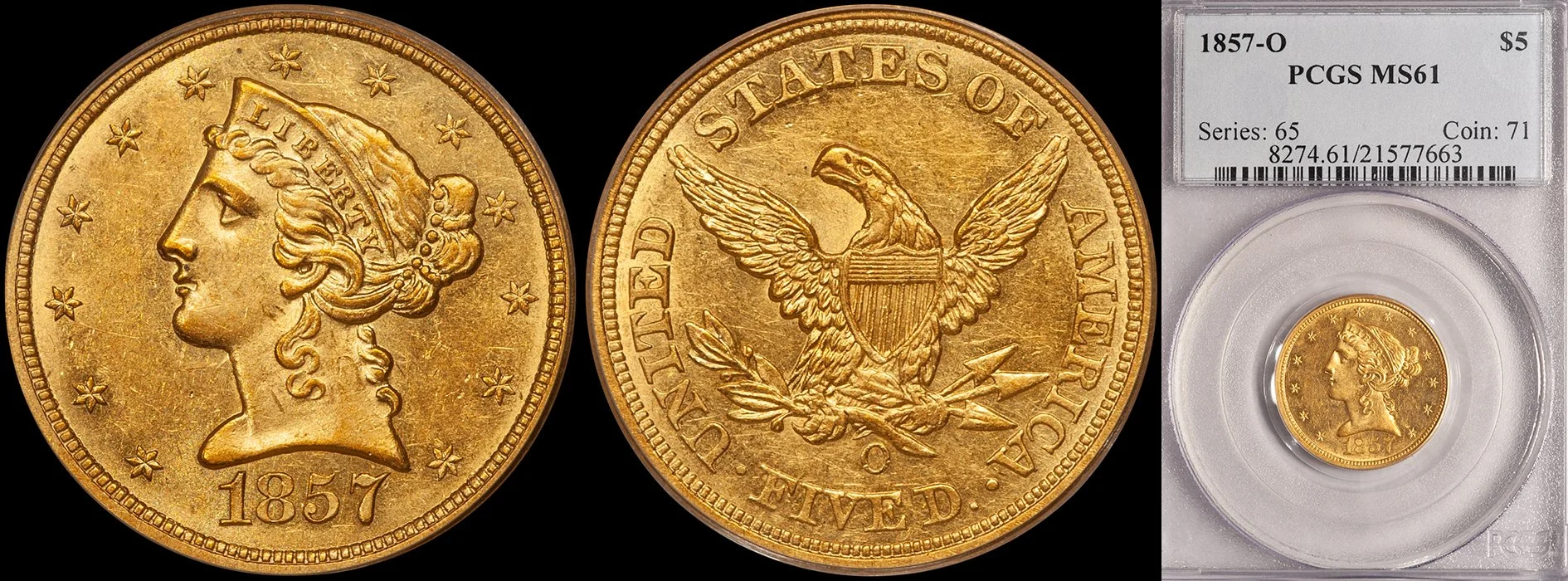Why Some Coins Sell and Why Some Don't
/At a typical coin show, I buy between 25 and 75 new coins. I like every coin I buy and I always think think that they have something worthwhile about them; something that will find them a new home. The majority of the new purchases I put on my website sell quickly. But, from time to time, a good coin doesn't sell quickly or even doesn't sell at all. Why?
One of the things that I like about my business is that it is somewhat predictable but not so rote that at this point I don't have to think about it. I am well known as a good source for buying and selling rare United States gold coins but enough quirky things happen to me on a week-by-week basis that it still makes it challenging (and fun) to do what I have done as a full-time profession for my entire adult life.
Why is it that some of the coins that I think are going to sell well on my website do not while others that I worry if they will even get a nibble receive multiple orders within hours of being posted? Here are some thoughts:
1. The Coin Didn't Image Well
Numismatics has become an extremely visual hobby with the proliferation of coin related websites. As recently as a decade ago, people relied on verbal descriptions. Today, it is all about images. I am lucky that I have one of the best coin photographers in the world working for me and her images are generally top-notch; certainly clear enough to give potential buyers an excellent idea of what the coin will look like in-hand. But even Jenna doesn't nail every image.
There have been a number of times I have gone through the coins on my site and noticed that a good coin that has sat around for a few weeks has an image that isn't quite perfect. Virtually every time the coin has been re-shot, it has sold.
Another thing that I have found is that sometimes NGC or PCGS holders need to be freshened. They might have scratches which appear to be on the coin in an image or they may be "scuffy" from spending too much time going from show to show in double row boxes. Sometimes, a fresh holder will get a coin sold.
2. They Are Too Expensive
I work on a pretty tight mark-up and I think I'm a savvy buyer who is able to buy nice coins at fair market value. But ultimately, it is up to my wholesale and retail buyers to determine if a coin is or isn't fairly priced. Usually my coins sell quickly and this is a validation of my pricing.
What about coins that have sat in my inventory for a month without a single inquiry? Sometimes they don't sell because they are perceived as being too expensive. In most cases, I have to agree with the market and re-price these coins accordingly.
On a number of occasions, I've taken a coin of mine which hasn't sold and put it in an auction where it has brought a good deal more than the price I had it for on my website. I would have to assume these coins were sold to buyers who don't go on my website at all and therefore didn't recognize where the coins were from.
3. Too Many Other Examples Have Sold
Some esoteric rare coins have a limited amount of demand.
As an example, I recently spoke with a very knowledgeable collector who passed on a coin on another dealer's website which I thought was an excellent value (I tried to buy it and was too late). I asked him why he passed on it and he replied that so many examples of this issue had been available in the last few major auctions that his perception was that it wasn't rare. While I didn't agree with him in this instance, this was still a good point.
Many of the higher end coins that I sell have reasonably limited demand. A New Orleans quarter eagle may be one of only six to eight known in Uncirculated but if all the major players in this area have one, a truly tough coin might take a while to sell. I generally have a good idea which coins have the strongest level of demand but my potential selling scenarios do not always come to pass. And sometimes, I am surprised by who buys a very rare coin; the New Orleans quarter eagle cited above may be purchased by someone who until now has only bought double eagles from me.
4. The Market For That Coin Is Slow
One of the odd things about a collector-driven market is that it can come to a screeching halt very quickly.
About seven or eight years ago, I quick-started the market for Three Dollar gold pieces. Within six months to a year, prices had risen and the market seemed self-sustaining with a high quality of demand. And poof!--just like that this seemingly strong market came to a screeching halt. Luckily, I was tuned into the market enough to know not to have a huge inventory of Threes and didn't get caught holding to many high-powered pieces when the market crumbled.
I notice the same thing happening from time to time in 2012-2013 although not on this level of magnitude. All of a sudden shipwreck coins are hot as a pistol and as a dealer I have to judge if the quality of demand is good enough that I would stock a $10,000 shipwreck double eagle that was $7,500 last year. This is one reason why I tend to be highly specialized in what I buy and sell. It's hard enough to know the vicissitudes of the market for 18th and 19th century gold coins let alone having to keep track of what Morgan dollars are selling in MS65 and what the premium factor is for PCGS/CAC coins in this series.
My point being...a coin I buy in January because I think it is going to sell might, through some quirk, become less easy to sell in February. That tends to be why I stick with coins that have multiple levels of demand and which are less subject to these shifts in demand.
5. Sheer Happenstance
I have this conversation at least once a week:
Collector: When did you add that nice 1873-CC eagle to your website? I need that coin! It's nice!
Me: Uh, I've had it up for six weeks. I was really surprised that no one asked about it until now....
My point being, sometimes through weird quirks of fate, a seemingly very easy to sell coin lasts weeks before it sells. Other times, I get four inquiries in a day about a coin I'm worried if it will sell, even though I like it. I'm sure if you asked five coin dealers the same question they would all agree: some coins that should sell quickly don't and for not good explanation.
Why do you think some coins sell and some don't? Add your comments below and let me know. Do you have any questions you'd like to ask about which specific coins sell well for me and which do not? Feel free to email me at dwn@ont.com

